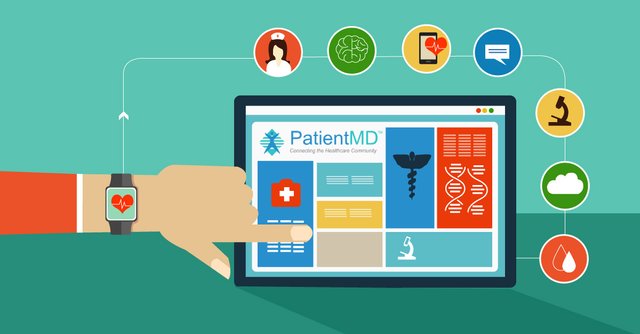IoT in Healthcare: Scope, Future and Challenges

Although the global market value of IoT is estimated to reach $7.1 trillion by the year 2020, the concept is still relatively new to a large part of the consumer segment. It is true even then that a convergence of multiple technologies, including but not limited to ubiquitous wireless communication, embedded systems, machine learning and real-time analytics has brought about a huge evolution in the vision of the IoT. Today we will talk about how this “smart” concept can contribute to the advancement of the healthcare industry.
What IoT can do for healthcare
Healthcare IoT is a connected infrastructure of software applications and medical devices that can communicate with various healthcare IT systems. With a foundational mission to optimize for better health in a faster and easier environment, IoT in healthcare connects patients and healthcare providers via software and technology. The Internet of Things is an example of technology that helps physicians build better relationships with patients and cultivate their engagement in the process.
The health-monitoring IoT devices range from heart rate monitors to electronic wrist bands and smart beds. The aim is to minimize manual interaction or human intervention, creating opportunities for improved accuracy and efficiency, not to speak of economic benefits. Not only does it lead to safer and healthier patients, it allows physicians to devote their time to specialized and personalized healthcare and paves way for innovation. Patients spend more time interacting with their doctors and general awareness increases manifold. We must keep in mind that healthcare being a vast ecosystem, the list is endless when it comes to IoT applications in the industry.
Challenges IoT must face
As the market for healthcare IoT increases, so do the challenges it needs to combat. To begin with, there is the humongous amount of data collected by the large number of connected devices, which can pose quite a bit of a challenge to the healthcare institution personnel to manage. Since data is exchanged with other devices, the question of security cannot be ignored either. Unauthorized access to devices can also lead to possible harm of the patients’ health and safety. Authentication and encryption are the stepping stones to achieving success in the battle against these challenges.
The ability of healthcare organizations to turn the data collected by IoT into meaningful insights will influence the future of IoT. It must be taken into account that IoT is not here to replace healthcare providers, but to provide then with the data it gathers from devices, in order to facilitate diagnosis and treatment, and to reduce waste and inefficiencies in the healthcare system.
Looking towards the Future
Wearables such as fitness trackers, blood glucose monitors and other connected medical devices have taken healthcare by storm. These devices have been embraced by the consumers and are being adopted by them for various purposes, with or without prescription. Such wearables allow patients to manage and track illnesses on their own. Today various parts of the body are connected to and monitored by 3.7 million medical devices inn use, to facilitate informed healthcare decision making.
Many physicians have supported IoT as an effective patient engagement technology because of this widespread adoption. There have been positive impact on reducing patient readmissions, supporting medication adherence and delivering home health support and monitoring, because of IoT devices.
IoT has a long way to go not only in healthcare, but on all the paths it has tread so far and will be traversing in future. Throughout the healthcare industry, its use is not as widespread as it has potential to achieve, but it will come. As the sizes and prices of the devices go down, rapid scaling of these technologies will take place. IoT in healthcare is set to radically change the way healthcare sees the management of inventory, the optimization of workflow and the integration of devices. The digital transformation of healthcare industry, among others, will most certainly be brought about by what is now being called the Internet of Healthcare Things (IoHT).
Thank you for the great article. I hope that more countries will start moving forward to developing Cat-M1 technologies and using Low Power Chipset for iot devices
Having read the above information, I would like to express my opinion. I guess healthcare will be the fastest-growing Internet of Things segment in the next five years. According to numerous studies, six out of ten global healthcare organizations already use IoT devices. For example, an operating patient is wearing a real-time location sensor that tells loved ones when the surgery is over. Isn't that cool? Another example is the wellness center texas, where I am treated. I recently learned that this center already has a Semtech LoRa device and network for fall detection.
For me, the future of medicine is in the fact that many things can be done, for example, tests can be done independently. Now there are already kits to make at home blood test , and it seems to me that for busy people like me, this is the most convenient option, because sometimes I don’t have time to buy groceries and do the cleaning. The results can also be found online, by the way.